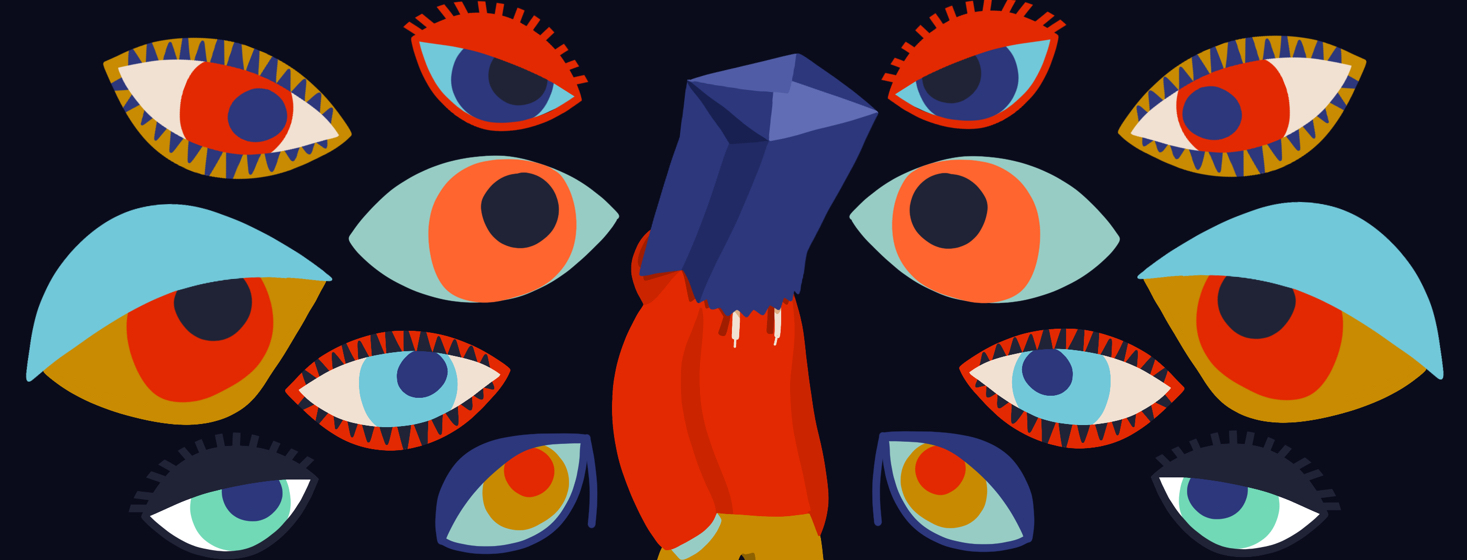Facing Up to Furious Facial Flare Ups
I have had eczema since I was a little girl. My mum recalls it started in the crevices of my joints initially. I was not one of the lucky ones who ‘grew out’ of it. As I became older, it merely increased in ferocity. At the age of 13, when I started secondary school, it made an appearance on my face…and then decided it liked my face so much, it took up permanent residence there.
Realistically, how can you hide a facial flare?
As anyone who has eczema on their face can empathize, it is a very challenging ailment to manage….because there is nowhere to hide. The only realistic options during furious facial flare-ups are (note: these are not meant to be taken seriously):
- Put a paper bag over your head with cut-out eye and mouth holes.
- Retreat. Find a little cave somewhere near Middle Earth and hide there until things become less painful, oozy, and flaky.
- Cry uncontrollably. Thus hoping your ocean of tears will ameliorate your skin.
In all honesty, I have tried all three options. (Un)surprisingly none of these options have proved to be particularly successful.
When will my face catch a break?
So, for as long as I can remember…I have grappled with facial eczema with a heavy heart and a sullen expression. I have poked, prodded, and preened my skin tirelessly (whilst also maintaining the usual mountainous amounts of minute-by-minute moisturization). This has all been in the hopeless hope of assuaging the feisty and fiery flare-up that inflames my face.
But my eczema has always asserted its dominance and fought back more stubbornly. So, as time has crept on I have found the skin on my face has become more like a weathered map…chronicling decades of devastation and destruction.
Do moisturizers provide relief?
The skin on my face is evidently dry and flaky. It is not an exaggeration to state that it resembles the sub-Saharan desert. Parched and dehydrated…screaming out for moisture. Yet, regardless of the number of emollients and elixirs I slather on, nothing seems to give it relief from good ol’ Vaseline, Epaderm, Doublebase gel, and Aquaphor to Cetraben, Aveeno, E45, CeraVe, and everything in between. So my skin has become reptile-like from years and years of harsh scratching fits.
How does hyperpigmentation affect me?
However, the thing that bothers me more than anything is the hyperpigmentation that has resulted. My facial skin is much, much darker than the rest of my body. In fact, if I was a doll and you popped my head off and then tried to match me up to the correct body….I am highly confident that this task would prove trickier than initially assumed. (Ahh, humor...my main coping strategy for dealing with my skin affliction).
Have others noticed?
My hyperpigmentation has hyperpigmentation. This has severely affected my self-esteem and confidence. Yet, when it initially occurred in my teen years, I was oblivious to it. However, at an extended family gathering (my bubble of ignorance - or bliss was popped) when my cousins asked me why I was so much ‘darker’ than my siblings. Until that moment, this was not something that I had realized. More so, the tone and manner in which they made this observation made me quickly realize that this was not a desirable thing, and that it was, in fact, a problem.
Have I experienced colorism?
This was my harsh introduction to ‘colorism.’ The prejudicial and highly discriminatory belief is that those with lighter skin tones are more highly favored. It is a belief that is commonly held amongst people of the same ethnic or racial group. It is akin to almost being a type of ‘inner racism.’ My experience is that this is very common in South Asian cultures…but can also be found in other communities around the world. Darker skin is automatically seen as bad, undesirable, and unworthy.
How has it impacted my life?
The hyperpigmentation that had been caused by eczema created a deeply embedded sense of inadequacy and worthlessness…feelings that have blighted me my whole life. In the eyes of my cultural community, I was seen as ‘lesser than.’ I was too young as a teenager to understand the full extent of the impact and immorality of this discriminatory attitude. It is only now, as an adult, that I can comprehend the full impact and ramifications that this (c)overt colorism had on me growing up as a young female in an image-obsessed society.

Join the conversation